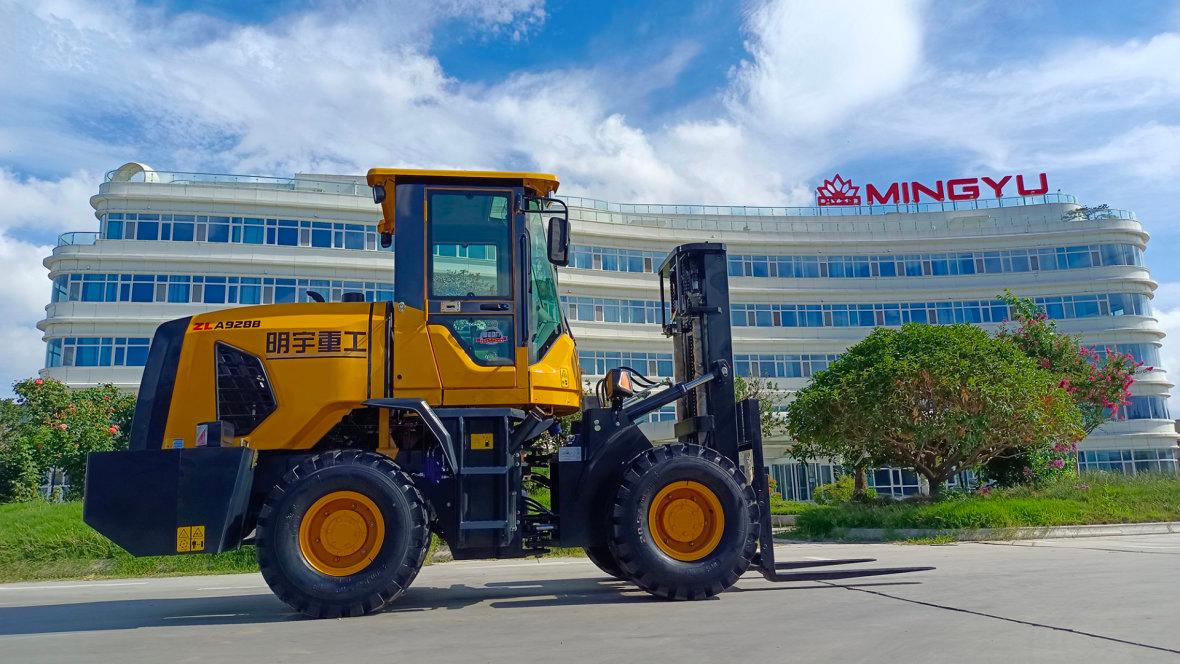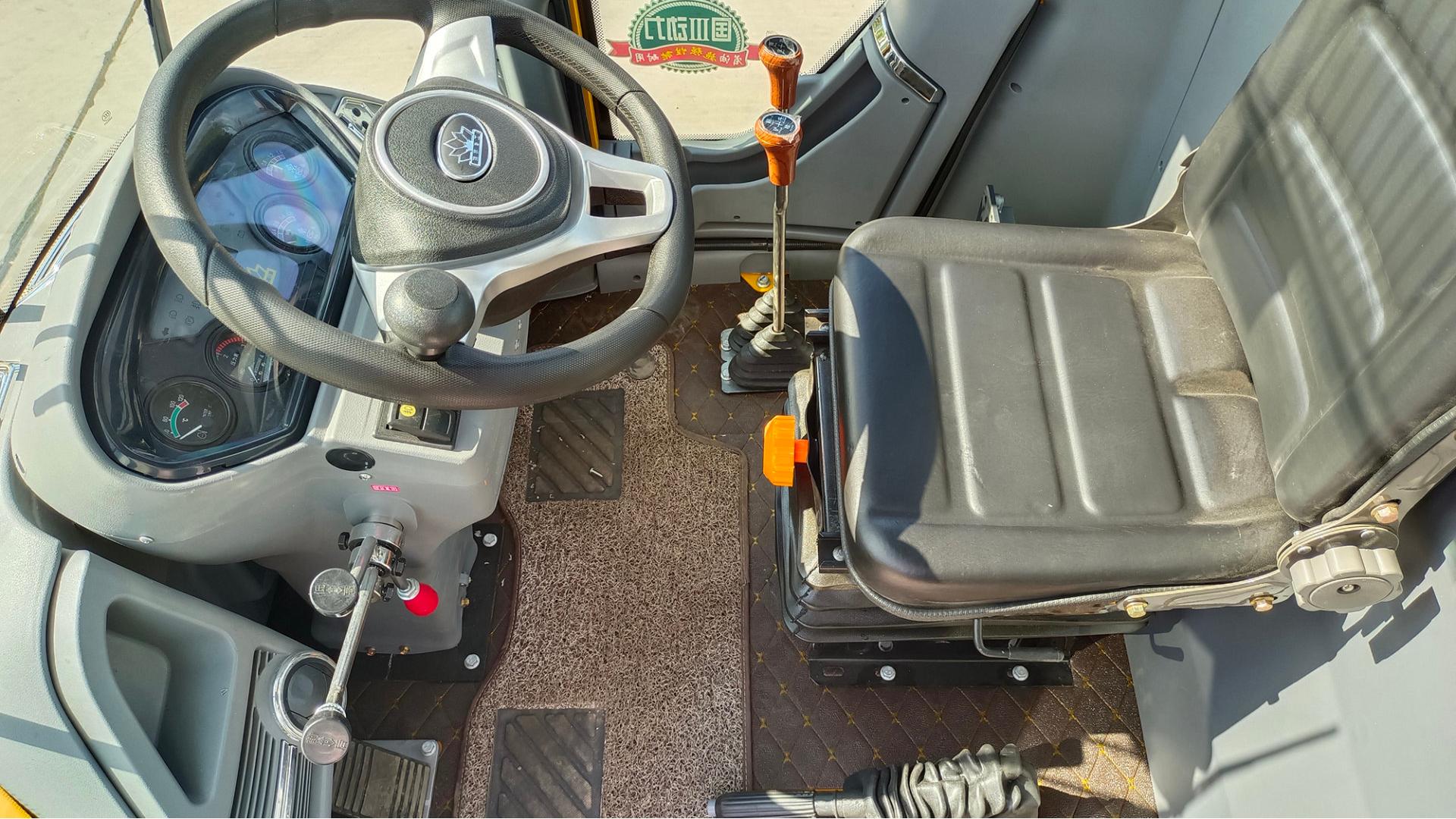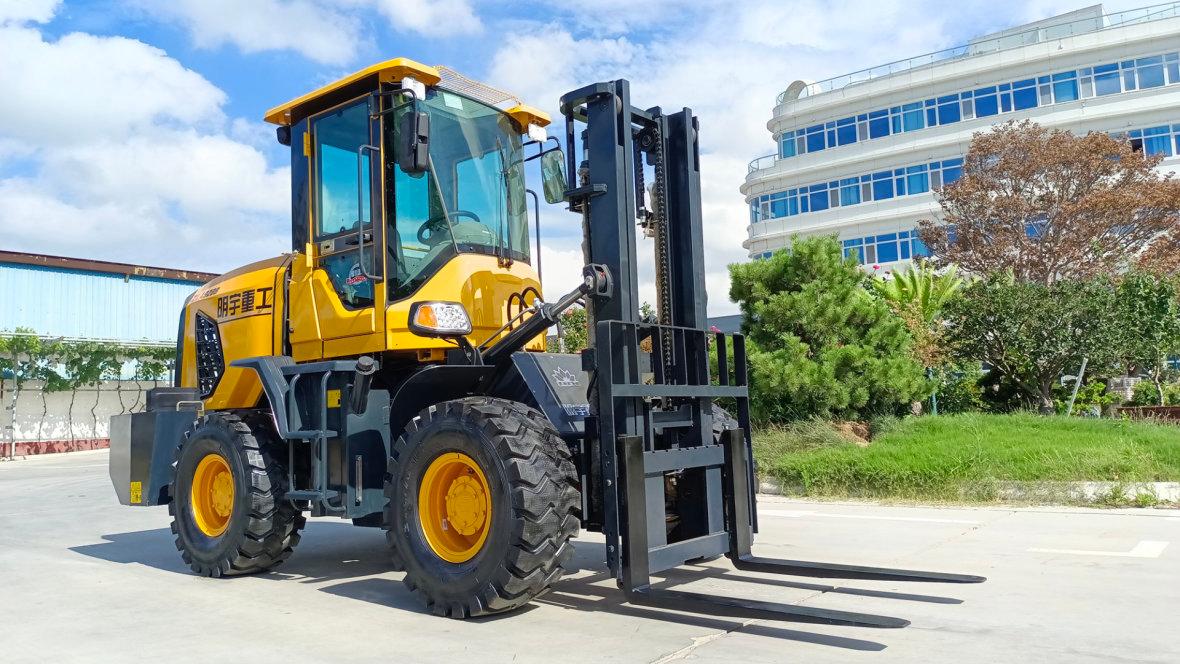Do Rough Terrain Forklifts Require Special Certification?
Introduction
Rough terrain forklifts are specialized machines designed to operate on uneven, unstable surfaces such as construction sites, farms, and outdoor storage yards. Unlike standard warehouse forklifts, they are built to handle challenging environments that require a unique set of skills from operators. Forklift safety is a critical concern in all industries, and proper operator certification is essential to minimize accidents and improve productivity. This article examines whether rough terrain forklifts require special certification beyond standard forklift operator training, reviewing regulations, training differences, and best practices.
1. Overview of Rough Terrain Forklifts
Rough terrain forklifts are distinct from conventional forklifts due to their robust construction, large pneumatic tires, and enhanced stability features. These machines are engineered to travel over dirt, gravel, mud, and uneven ground, enabling them to perform loading and lifting tasks in outdoor or rugged environments.
Common features include four-wheel drive, high ground clearance, and strong suspensions. Typical applications include construction, agriculture, lumber yards, and mining operations. Their design and usage environments set them apart from forklifts used indoors on smooth floors.
2. General Forklift Operator Certification Requirements
In many countries, forklift operator certification is mandated by workplace safety regulators such as OSHA in the United States or the Health and Safety Executive (HSE) in the UK. These certifications typically involve formal training programs covering forklift operation, safety rules, hazard recognition, and hands-on practice.
Certification processes usually require operators to pass written and practical exams and may include periodic refresher training. The core purpose is to ensure operators understand forklift controls, safe operating practices, and emergency procedures.
3. Specific Challenges of Operating Rough Terrain Forklifts
Operating a rough terrain forklift presents additional challenges beyond those encountered with standard forklifts:
Navigating uneven, loose, or soft surfaces that can affect traction and stability.
Handling larger or irregularly shaped loads that may shift during transport.
Dealing with weather conditions such as rain or snow that further complicate control.
Increased risk of tipping or rollover due to uneven ground and slopes.
These challenges require operators to possess advanced situational awareness, terrain assessment skills, and the ability to adjust driving techniques accordingly.
4. Certification Regulations for Rough Terrain Forklifts
The critical question is whether rough terrain forklifts require special or additional certifications.
According to OSHA regulations (29 CFR 1910.178), forklift operators must be trained and evaluated for the specific type of equipment and environment in which they operate. This means:
Operators certified for warehouse forklifts are not automatically qualified to operate rough terrain forklifts.
Employers must provide site-specific training that addresses the unique demands of rough terrain operation.
While there is no separate federal certification exclusively for rough terrain forklifts, the training must cover the special hazards and operational differences involved.
Industry best practices often recommend or require formal training programs dedicated to rough terrain forklifts, ensuring operators are fully competent.
5. Training Program Differences
Training for rough terrain forklifts typically extends beyond standard forklift training and includes:
Instruction on terrain evaluation and hazard identification specific to outdoor environments.
Techniques for safe operation on slopes, uneven ground, and soft surfaces.
Understanding the machine’s limitations, including load capacity reductions on rough terrain.
Proper use of stabilizers or outriggers if applicable.
Emergency procedures related to rollovers or mechanical failures in remote locations.
Training duration may be longer, and certification renewal intervals might be more frequent, reflecting the increased risks.
6. Employer and Operator Responsibilities
Employers are responsible for ensuring that forklift operators are properly trained and competent to operate rough terrain forklifts safely. This includes:
Conducting risk assessments of work environments.
Providing comprehensive training tailored to equipment and site conditions.
Maintaining documentation of training and evaluations.
Scheduling refresher training or re-evaluation after incidents or periodic intervals.
Operators must adhere to safe practices, report hazards or equipment issues, and continuously update their skills.
7. Safety Considerations and Risk Management
Safety on rough terrain forklift operations requires specific measures:
Use of seat belts and rollover protection structures (ROPS).
Adherence to speed limits appropriate for terrain conditions.
Regular machine inspections focusing on tires, brakes, and steering.
Clear communication protocols on noisy or expansive sites.
Incident reporting systems to analyze and prevent accidents.
Effective risk management reduces injury rates and protects both personnel and assets.
8. Benefits of Specialized Certification
Specialized rough terrain forklift certification offers numerous advantages:
Reduces workplace accidents related to operator error or unfamiliarity.
Increases operator confidence and efficiency in difficult conditions.
Ensures compliance with regulatory requirements and insurance conditions.
Supports a culture of safety and professionalism.
Investing in proper certification is an investment in productivity and risk reduction.
9. Case Studies or Industry Examples
Many companies operating in construction and agriculture have adopted specialized certification programs for rough terrain forklifts. For example:
A construction firm reduced forklift-related accidents by 30% after implementing a tailored training program.
An agricultural cooperative mandated rough terrain certification for all equipment operators, improving operational efficiency during peak seasons.
Such examples demonstrate the practical value of specialized training.
Conclusion
While rough terrain forklifts do not require a separate federal certification distinct from standard forklift licenses, safe operation demands specialized training tailored to their unique challenges. Employers must ensure that operators receive comprehensive, site-specific instruction covering the hazards and skills necessary for rough terrain environments. Proper certification improves safety, regulatory compliance, and operational efficiency. Ultimately, investing in specialized training is essential for protecting workers and assets in demanding outdoor settings.
Post time:Jul.28.2025



